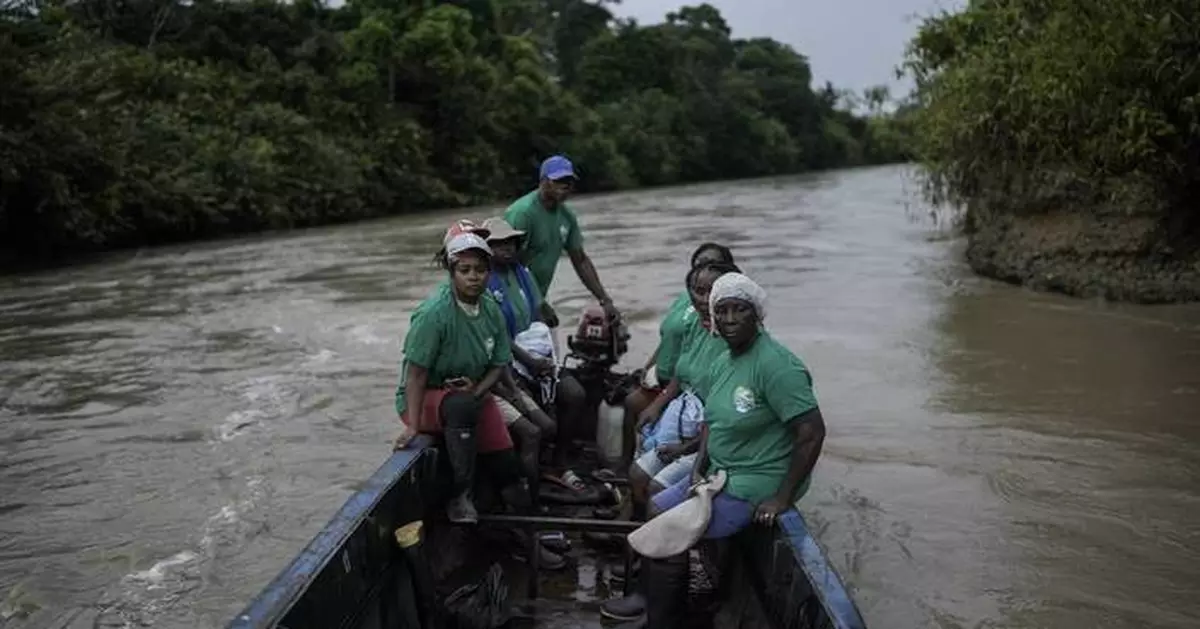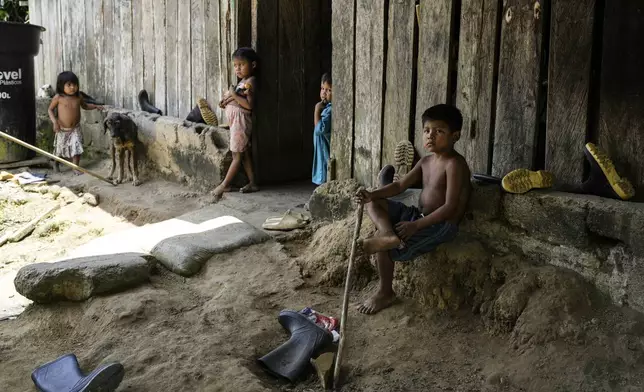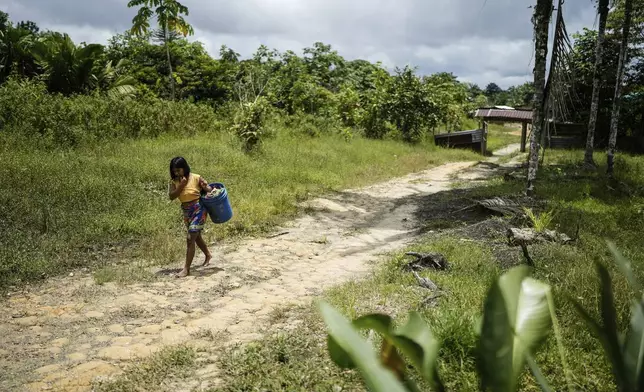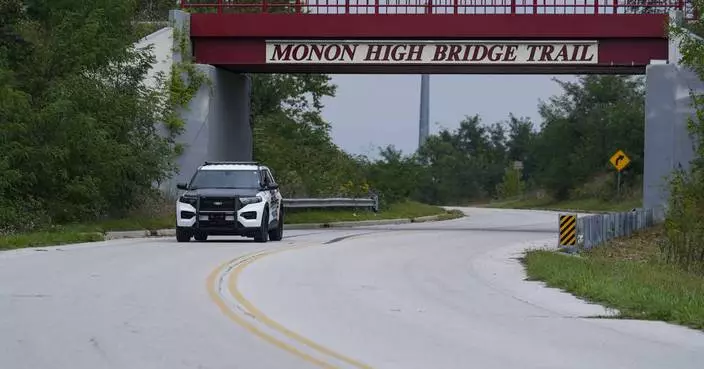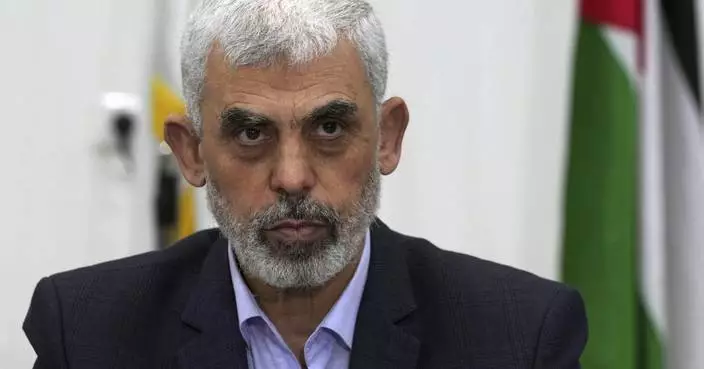SAN ISIDRO, Colombia (AP) — In an outdoor classroom surrounded by snake specimens preserved in jars, teacher Melqui Mosquera proudly talks about the nature reserve he set up in a Colombian region environmentally devastated by illegal mining.
There are fish ponds with species native to the northwestern Choco region that were wiped out of the Atrato River due to contamination. A walk uphill leads to crystal water streams teeming with fish, jungle vegetation and chirping birds — a rare sound in many parts of the river now as wildlife has been pushed deep into the canopy by the loud machinery.
Thanks to the support of a community council that liaises with the groups, mining has not yet reached the El Guayacan nature reserve, which was founded in 2013 with 13 hectares and today boasts over 200. Mosquera is pushing to achieve official legal status for the reserve, which could force the government to provide more protection.
Mosaquera's reserve is one of many initiatives by ethnic communities in this impoverished region to fight back against the environmental devastation inflicted upon the Atrato, a river that weaves around some 750 kilometers (470 miles) through northern Colombian jungles. With no visible state presence and armed groups encroaching on the land for gold, these projects contain some of the last forms of protection for biodiversity in the region, supporting native plant life and fish populations no longer sustained by barren land and polluted waters.
The reserve in San Isidro is reachable only by boat. The marking of the Gaitanista Self-Defense Forces of Colombia, or Gulf Glan — the letters AGC — is spray painted on the government-placed sign upon entry to the port. It's the country’s most powerful crime group and it controls the illegal gold mining operations that engulf the town.
An enormous makeshift mining dredge dominates the entrance to San Isidro. Upon arrival, Associated Press journalists were approached by men patrolling the river by boat who warned not to record images of the machinery.
“We have clashed with them (AGC),” said 60-year-old Mosquera. “Because there’s a part here with gold, you see. They’ve tried to take over to mine it.”
The waters of the Atrato River, long a community life source, have been contaminated through years of intense gold mining which tears up the riverbed, leaks poisonous mercury into the waters and deforests the surrounding land.
Mosquera has noticed worsening levels in biodiversity along the Atrato, especially on the Quito River tributary on which San Isidro is located. He says fish no longer breed there.
“On the banks of the rivers there were many roots, many branches, which was the refuge of the fish,” he said. “Now there’s no more refuge, because mining has taken it all away.”
Colombia’s environment ministry said Minister Susana Muhamad has been coordinating efforts with the Ministry of Defense “to protect this important ecosystem.”
But the AP saw no state presence along the river during its three-day visit to various locations along the river, and residents said it has been a long time since any operations have taken place against illegal mining infrastructure.
Colombia will host the United Nations Biodiversity Conference, known as COP16, this month, a follow up to the 2022 biodiversity conference in Montreal, aimed at halting the rapid destruction of nature. Muhamad will serve as the conference’s president.
Illegal gold mining in South America, and all the problems it brings, is one of the biggest threats to preserving biodiversity. But in Mosquera's classroom, the causes of the deforestation and contamination from mining are never discussed, out of fear of reprisals. Many of the student's families are involved in mining, as well as with armed groups, he said.
“We feel tied up... we know that we can’t talk. The mining part we can’t even mention in the classroom," Mosquera said. “We talk to students about global, regional environmental damage, but we don’t talk to them about what is going on here.”
Forty minutes by boat down the Atrato leads to the town of Paimado, where a group of women form another environmental project.
At 6 a.m., rain lashes down while Dioselina Palacios, 49, carries a bag of fertilizer on her head and mounts a small wooden boat. A couple of minutes to the other side of the river to a plot of land degraded by mining and she is soon mixing soil collected from a nearby forest with the fertilizer, which was bought from a local woman who produces it in Paimado. Then, plant seedlings are brought from nearby forests and are replanted with the fertilizer. When they have grown, they are planted on the degraded land.
Illegal gold mining with heavy machinery meant trees were ripped out and the land is left rocky and sedimented. Hugh swaths of land remain sunken where diggers excavated all they could in search of the lucrative metal.
“We are doing this work to see if we can replace a little bit of what has been lost,” said another of the women, Nereida Romaña, 65, wearing a green T-shirt with a print of the project's logo. “Before, when there were no illegal machines, you lived a good life here ... Now you can’t even get fish.”
Agricultural engineer David Antonio Navas, who supports the project, Asociacion Nuestra Casa Comun, or Our Community House Association, as part of Colombia’s Cordoba University, said the women have been taught how to stabilize the soil, and to collect different kinds of seeds in the forest like timber and fruit trees that are native to the area to take to the nurseries.
“Organic fertilizers are made from local resources, like organic waste we have from food, shells, skins,” he said. “We don’t bring anything. All the resources we need for the soil, for pests, for everything, is already in the community.”
Most of the women taking part in the small reforestation project say they have worked in gold mining for most of their lives to make a living. Palacios continues to today, with little other income possibilities.
As part of Afro-Colombian tradition, the woman plant native trees in the area only during a full moon. They have also sown medicinal plants important in their culture.
As impoverished region's gold is quickly vanishing, mothers like Palacios worry what will be left economically and environmentally for the next generations.
Navas believes the communities should be paid to help reverse the damage caused to their ecosystem by third parties.
“We are aware that it should be the communities that support this process of restoration of degraded areas by mining," he said. “For this they should have a salary that allows them to generate the income to cover their needs.”
But Palacios fears that despite all the initiatives, something has been permanently lost.
“I don’t think it’s going to come back again. It was a thick jungle,” she said. “They work and they leave lots of holes and it’s not the same anymore.”
Follow Steven Grattan on X: @sjgrattan
The Associated Press’ climate and environmental coverage receives financial support from multiple private foundations. AP is solely responsible for all content. Find AP’s standards for working with philanthropies, a list of supporters and funded coverage areas at AP.org.
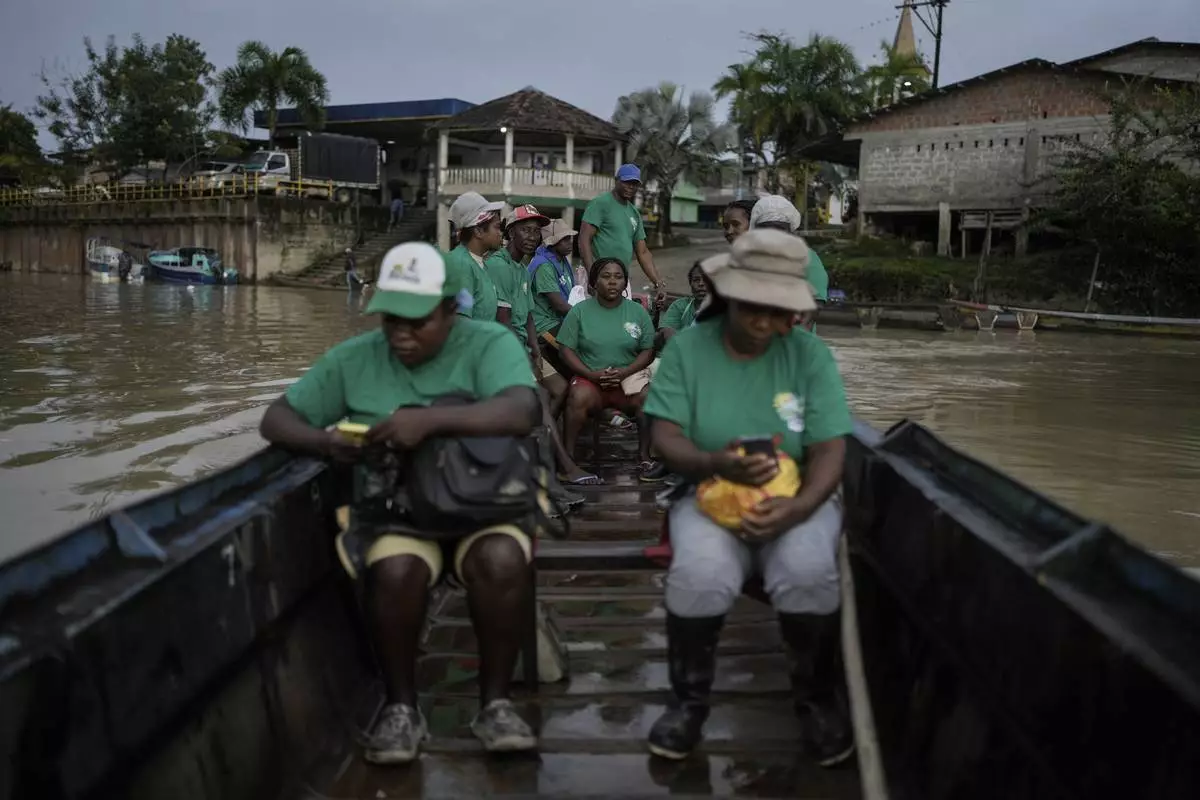
A group of women, part of Asociacion Nuestra Casa Comun, or Our Community House Association, head by boat to reforest an area destroyed by illegal mining, in Paimado, Colombia, Tuesday, Sept. 24, 2024. (AP Photo/Ivan Valencia)
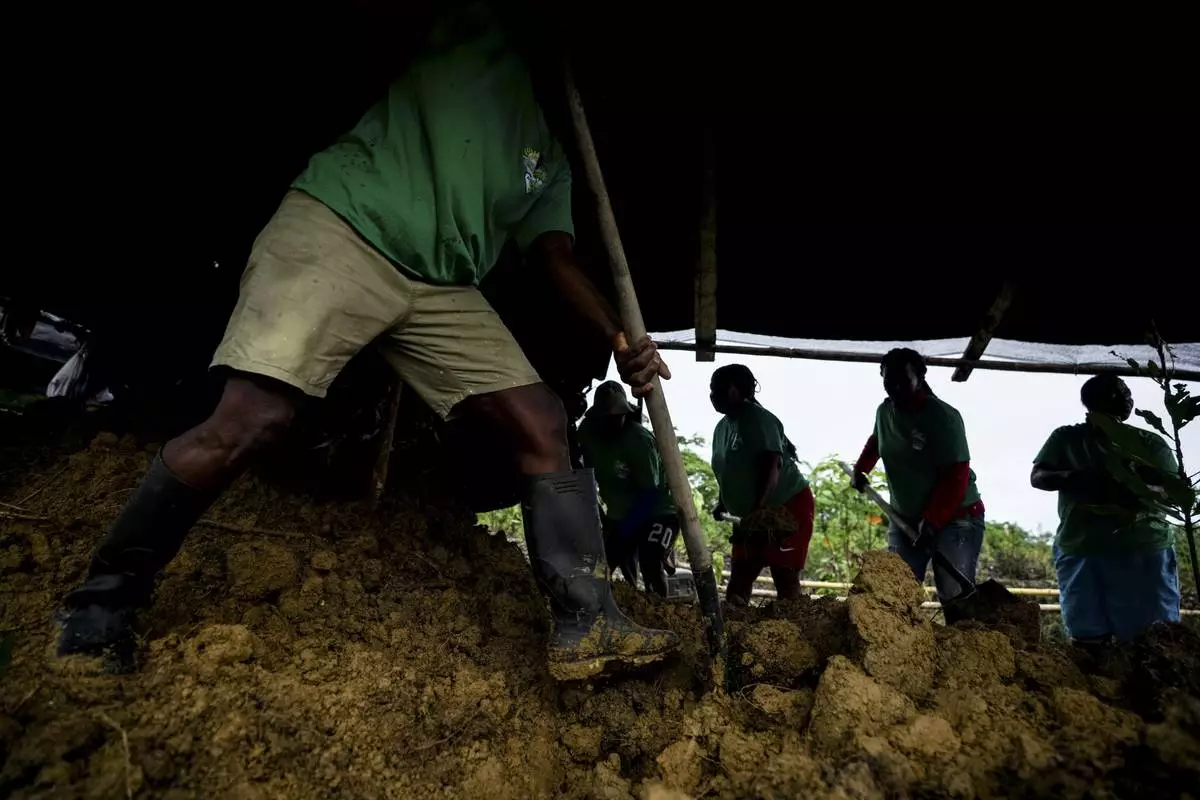
A group of women, part of Nuestra Casa Comun association, work reforesting an area destroyed by illegal mining, near Paimado, Colombia, Tuesday, Sept. 24, 2024. (AP Photo/Ivan Valencia)
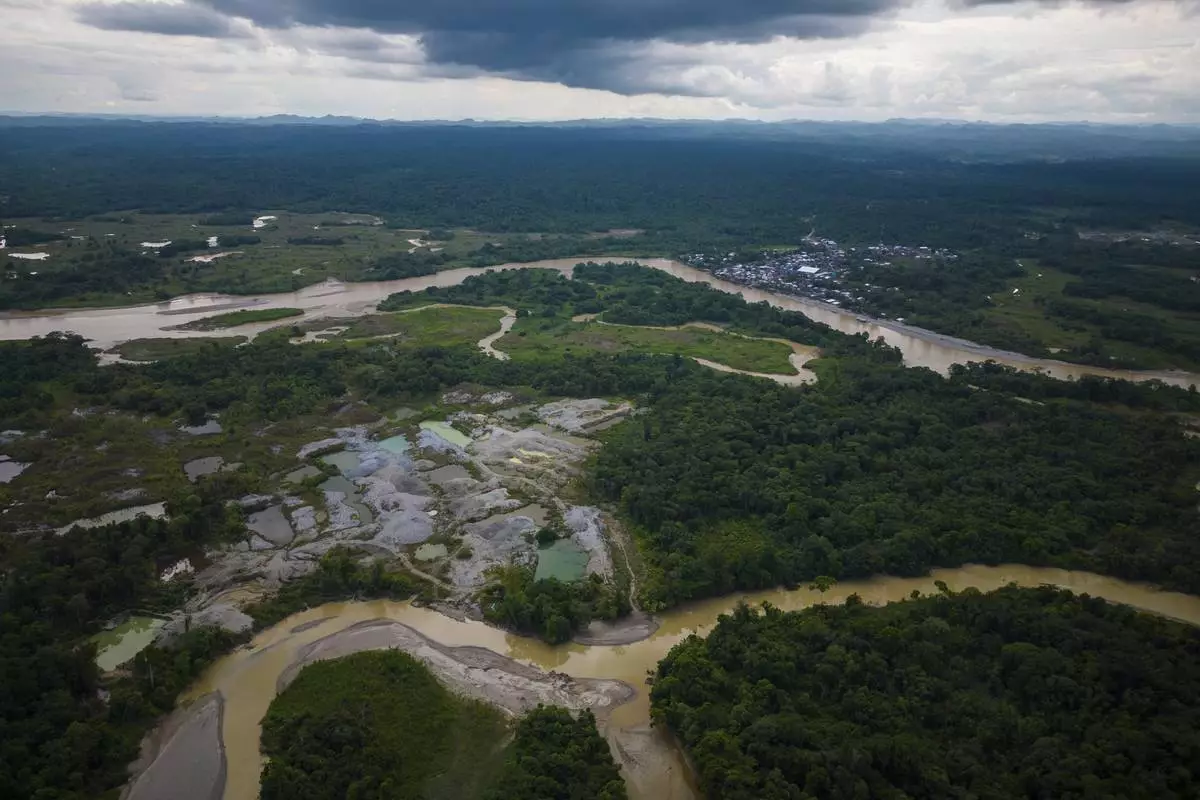
Visible deforestation from illegal mining sits along rivers near Paimado, Colombia, Tuesday, Sept. 24, 2024. (AP Photo/Ivan Valencia)

Indigenous children of the Embera community play outside of their home within El Guayacan nature reserve in San Isidro, Colombia, Tuesday, September 24, 2024. (AP Photo/Ivan Valencia)

An Indigenous woman from the Embera community walks through El Guayacan nature reserve in San Isidro, Colombia, Tuesday, Sept. 24, 2024. (AP Photo/Ivan Valencia)
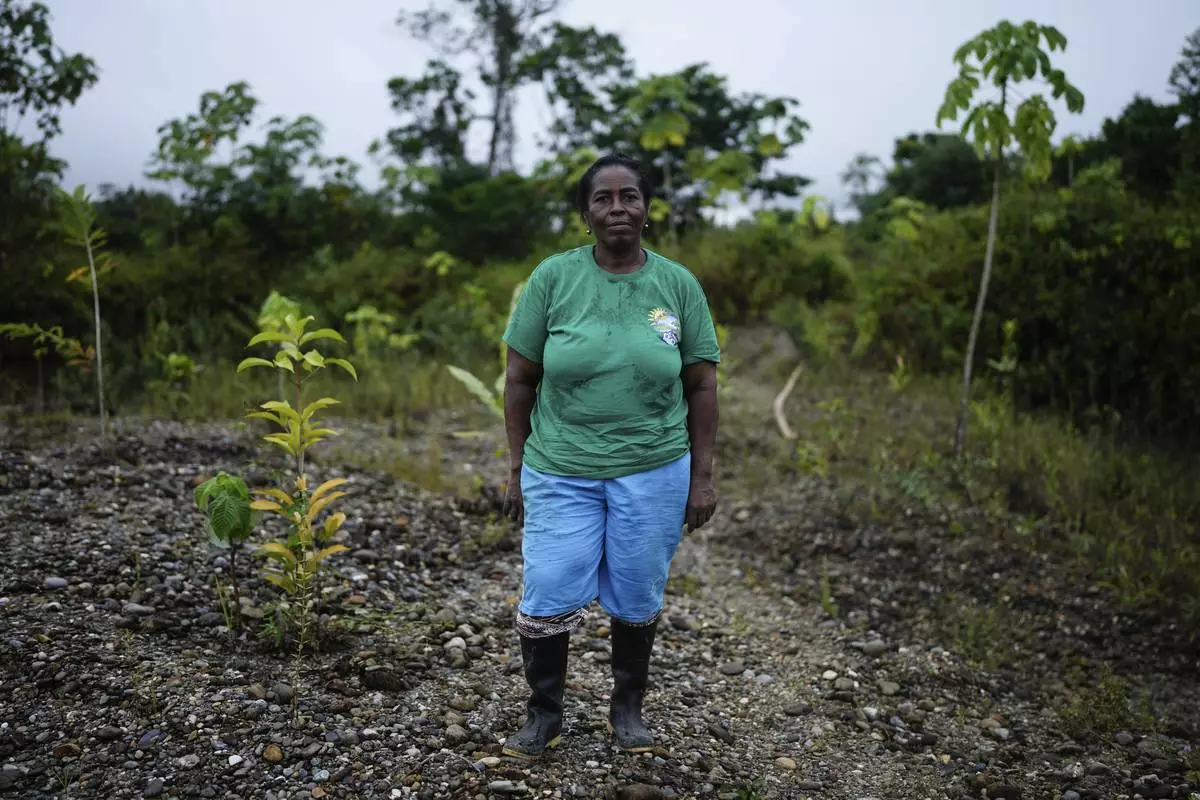
Nereida Romana, part of Asociacion Nuestra Casa Comun, or Our Community House Association, poses for a photo while reforesting an area near Paimado, Colombia, Tuesday, Sept. 24, 2024. (AP Photo/Ivan Valencia)
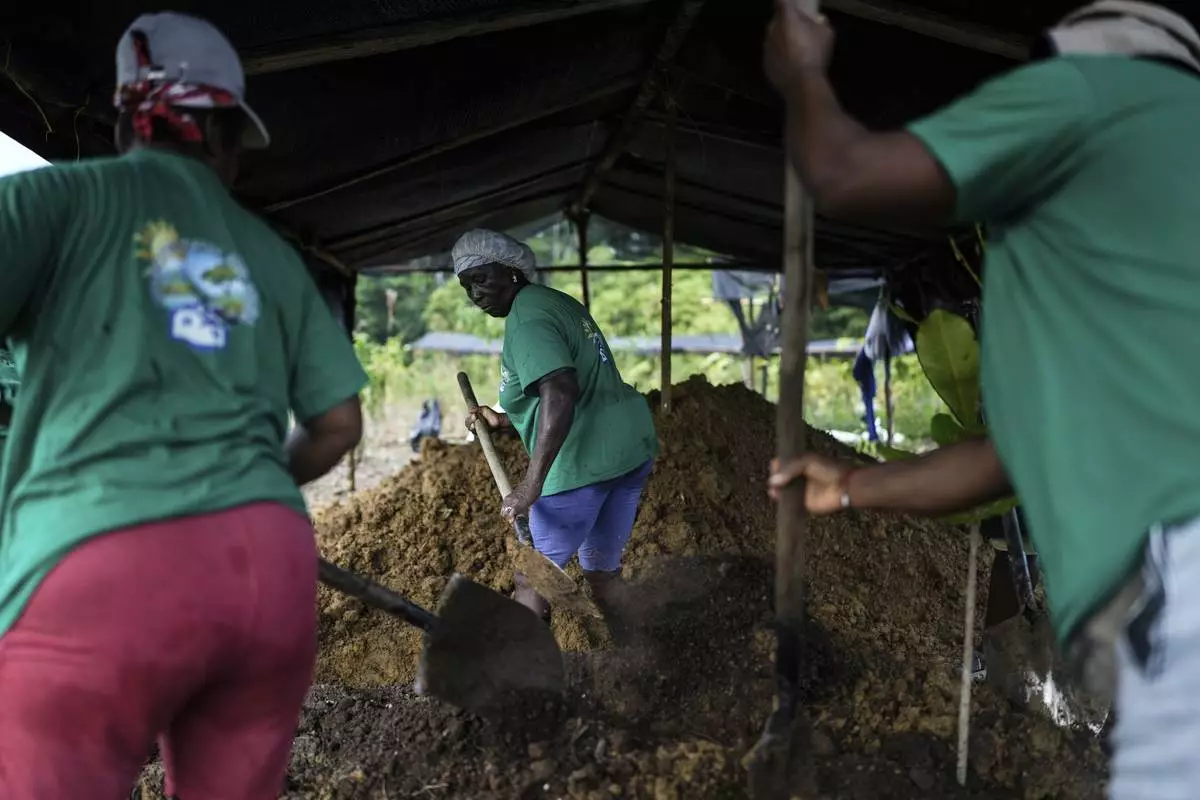
A group of women, part of Asociacion Nuestra Casa Comun, or Our Community House Association, work to reforest an area destroyed by illegal mining, near Paimado, Colombia, Tuesday, Sept. 24, 2024. (AP Photo/Ivan Valencia)
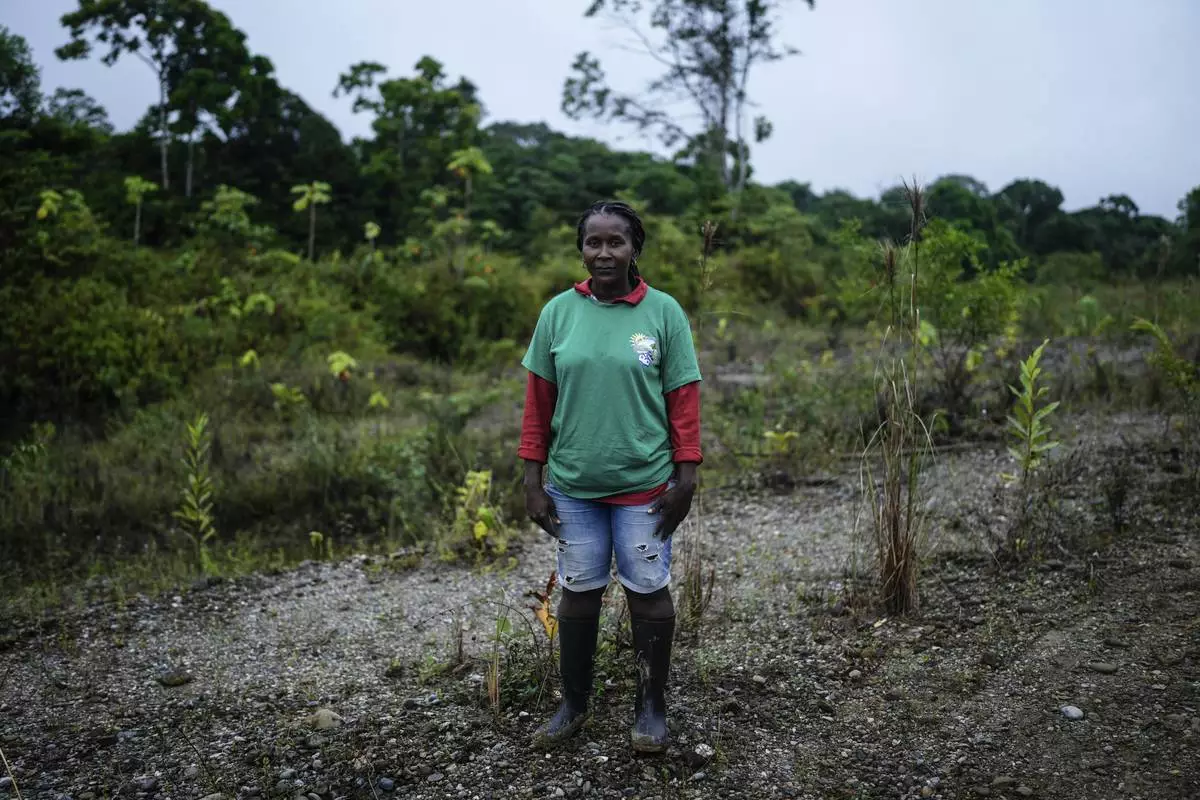
Dioselina Palacios, part of Asociacion Nuestra Casa Comun, or Our Community House Association, poses for a photo while reforesting an area near Paimado, Colombia, Tuesday, Sept. 24, 2024. (AP Photo/Ivan Valencia)
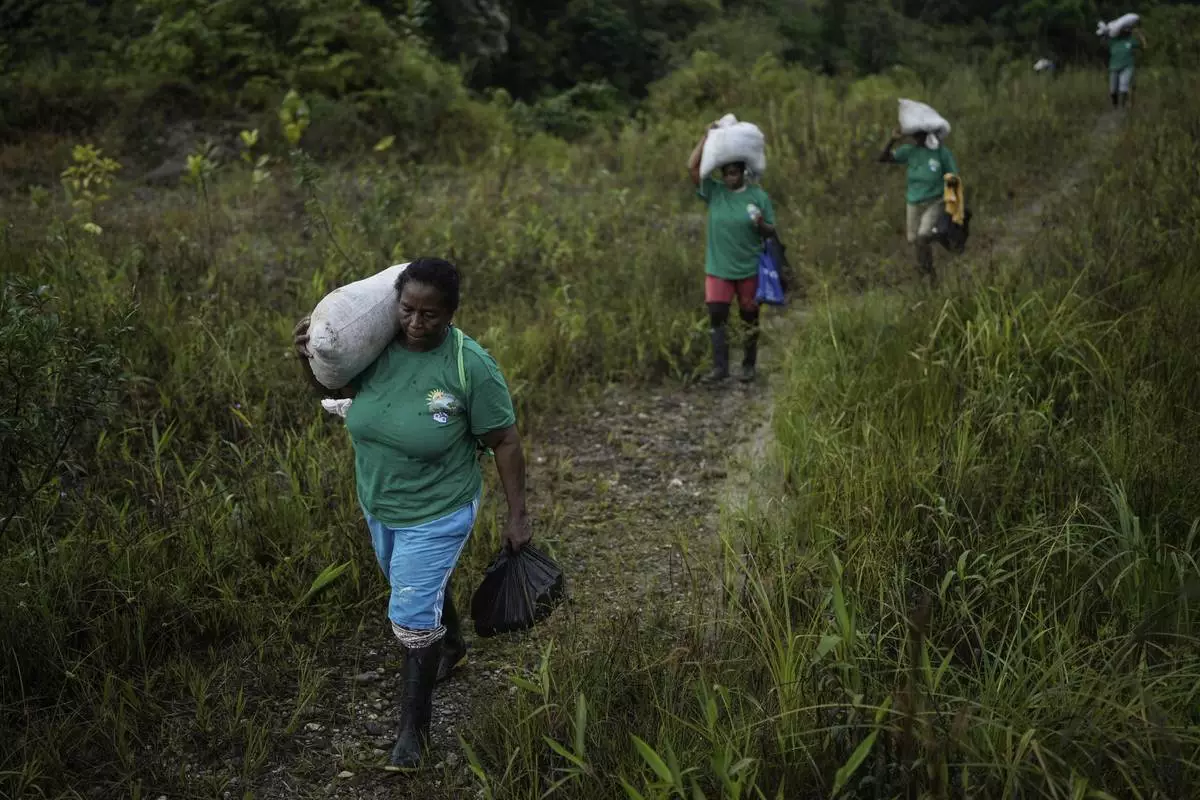
A group of women, part of Asociacion Nuestra Casa Comun, or Our Community House Association, carry a bunch of fertilizer to reforest an area destroyed by illegal mining, near Paimado, Colombia, Tuesday, Sept. 24, 2024. (AP Photo/Ivan Valencia)
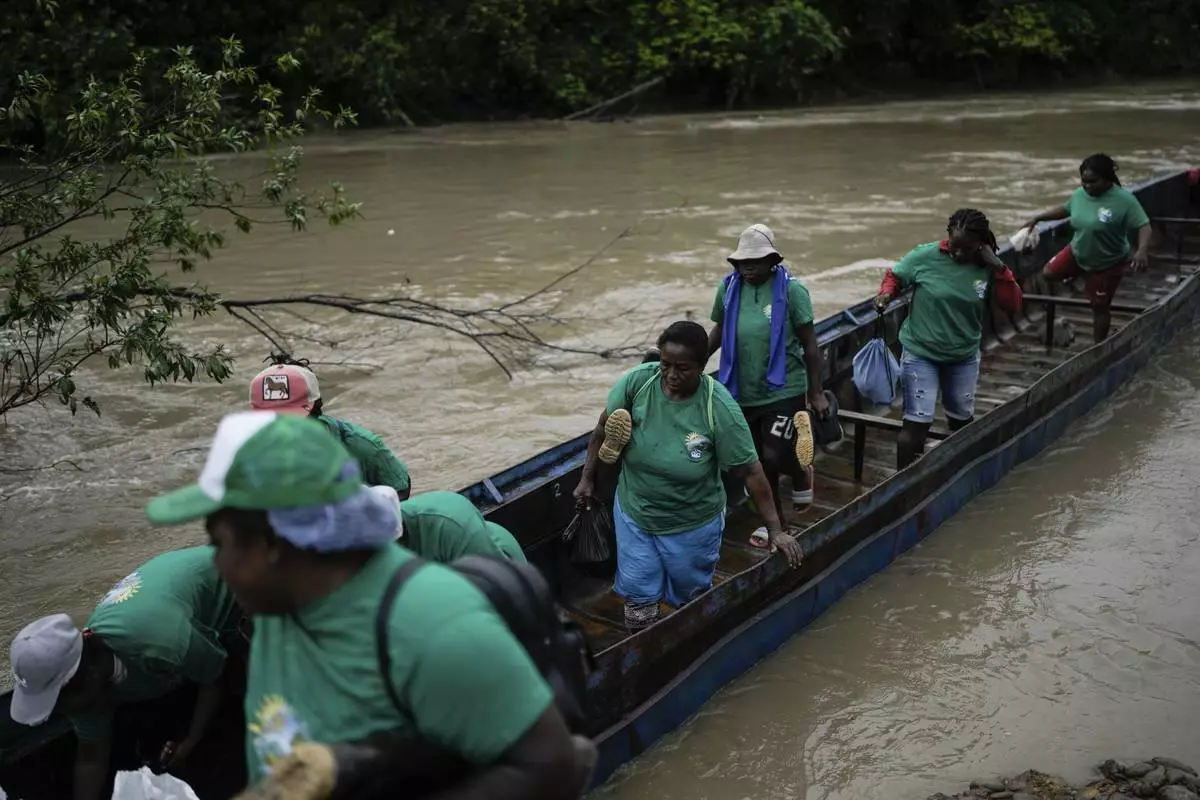
A group of women, part of Asociacion Nuestra Casa Comun, or Our Community House Association, arrive in an area destroyed by illegal mining on the Quito River, near Paimado, Colombia, Tuesday, Sept. 24, 2024. (AP Photo/Ivan Valencia)
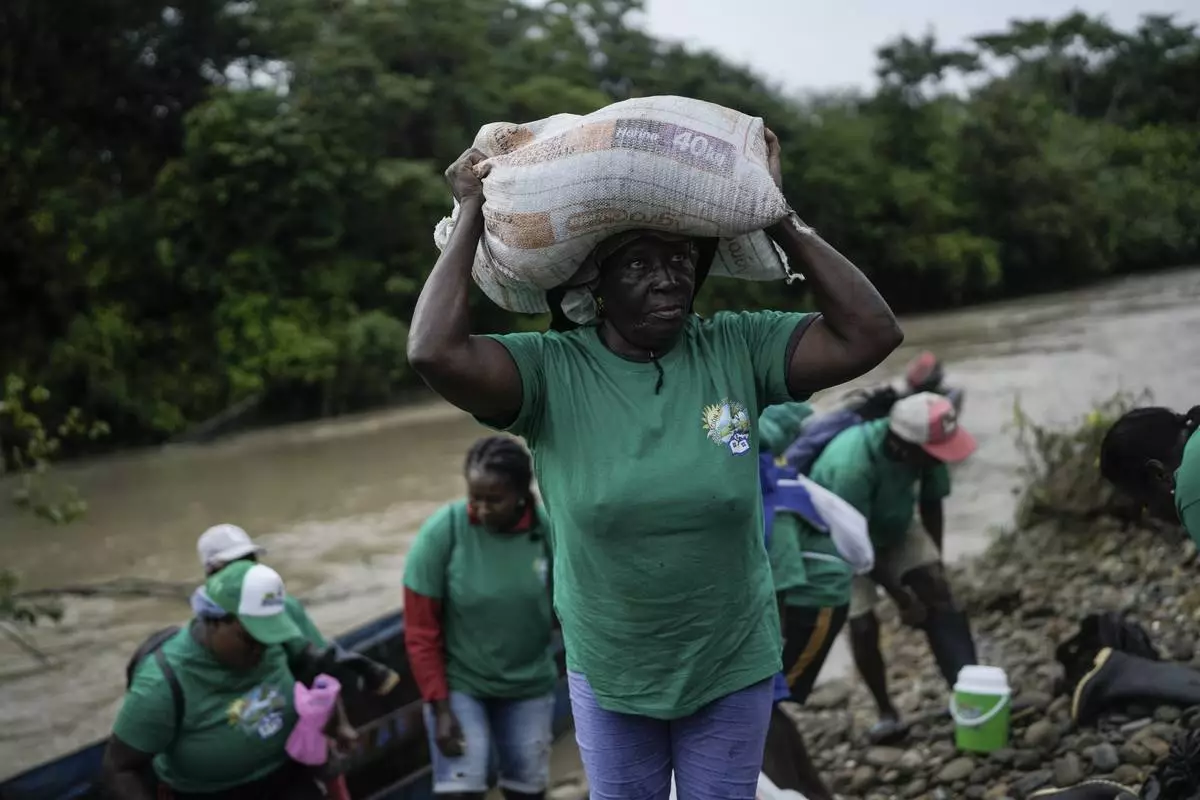
A woman, part of Asociacion Nuestra Casa Comun, or Our Community House Association, carries fertilizer to help reforest an area destroyed by illegal mining, near Paimado, Colombia, Tuesday, Sept. 24, 2024. (AP Photo/Ivan Valencia)
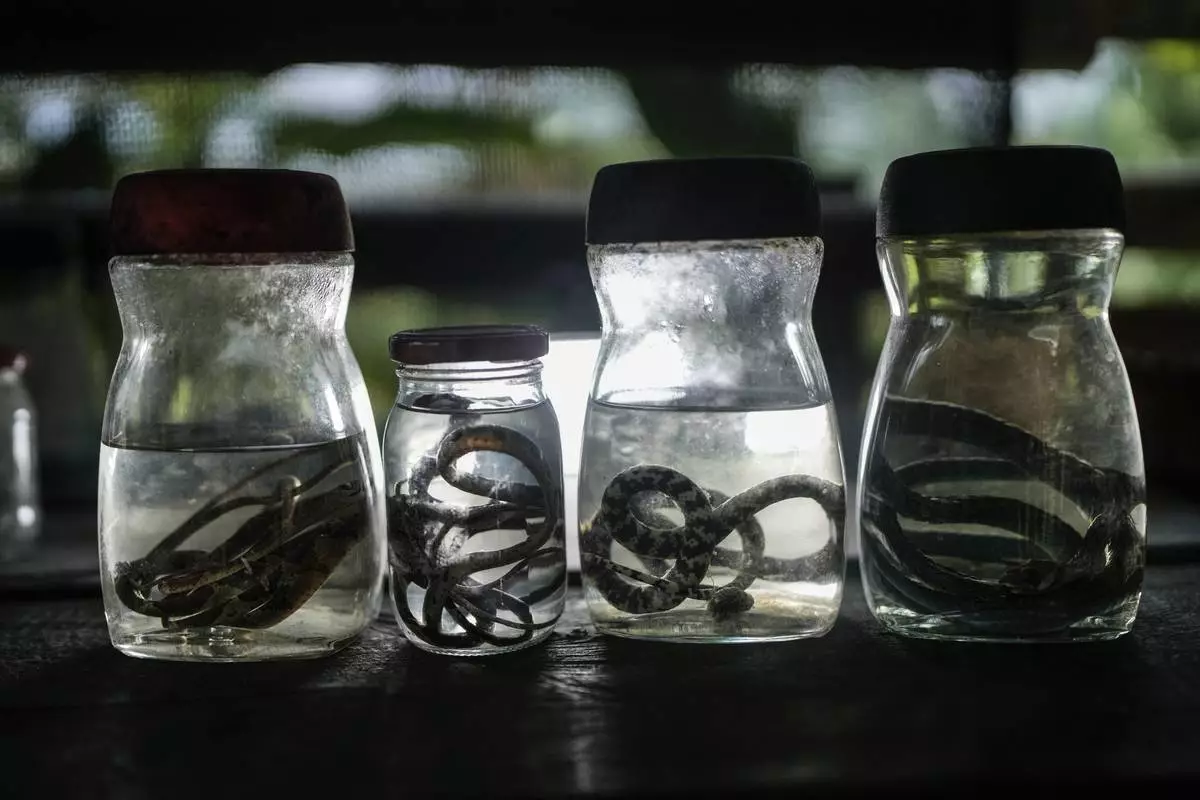
Snake specimens preserved in jars for children's education are displayed at El Guayacan nature reserve by Melqui Mosquera in San Isidro, Choco state, Colombia, Tuesday, Sept. 24, 2024. (AP Photo/Ivan Valencia)
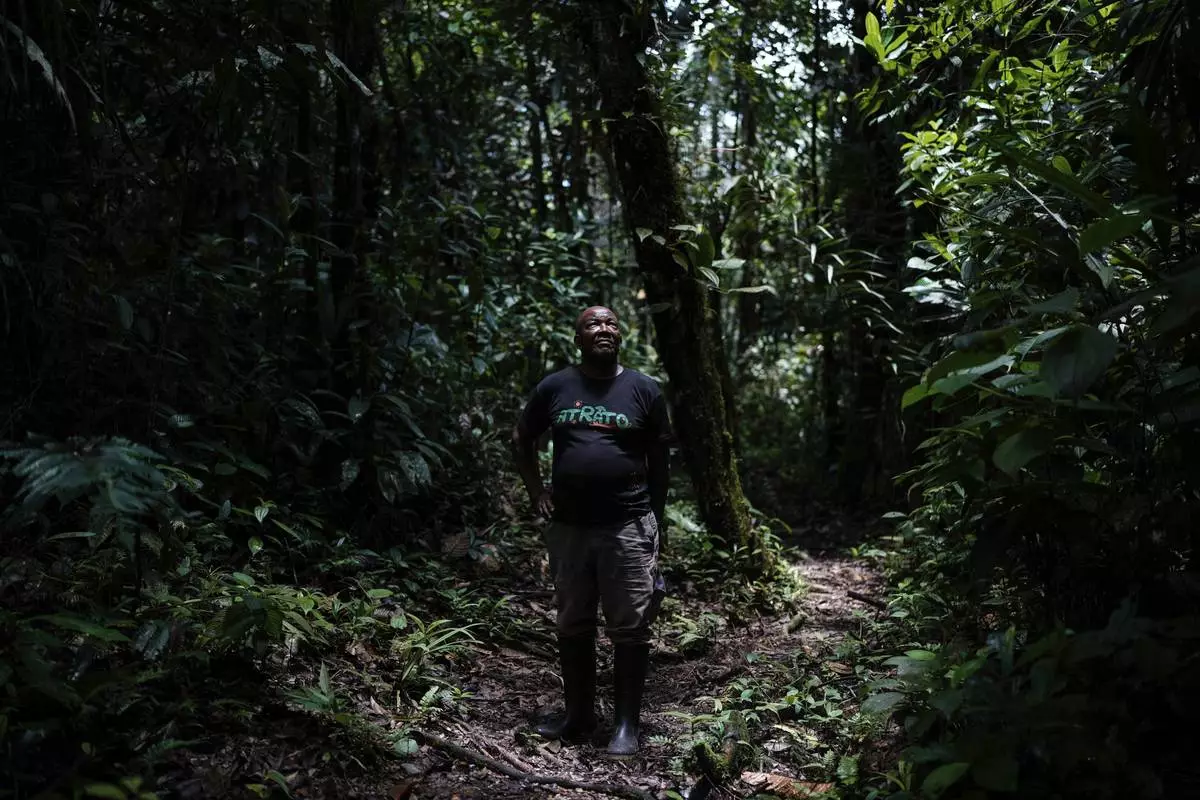
Melqui Mosquera, a teacher, poses in El Guayacan nature reserve in San Isidro, Colombia, Tuesday, Sept. 24, 2024. (AP Photo/Ivan Valencia)
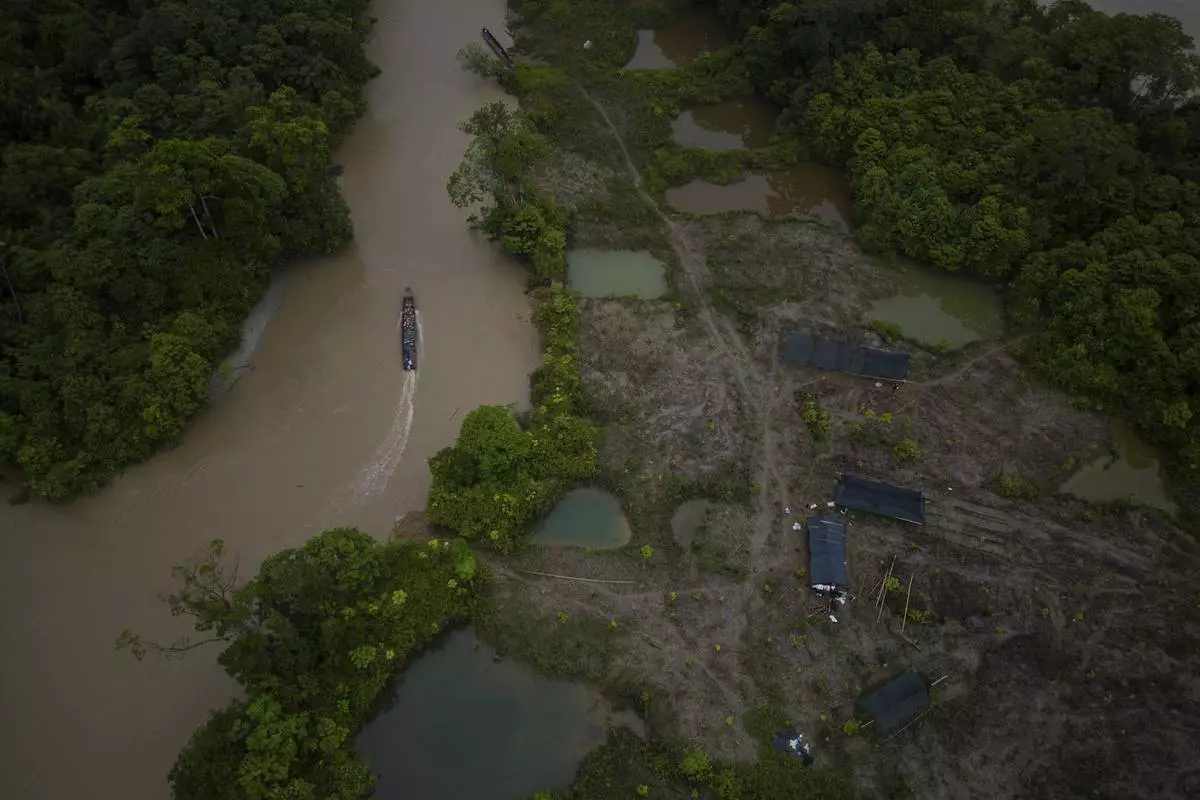
A boat, with gasoline to be taken to illegal mining machinery, maneuvers past an area that was mined and is being reforested by Asociacion Nuestra Casa Comun, or Our Community House Association, near Paimado, Colombia, Tuesday, Sept. 24, 2024. (AP Photo/Ivan Valencia)
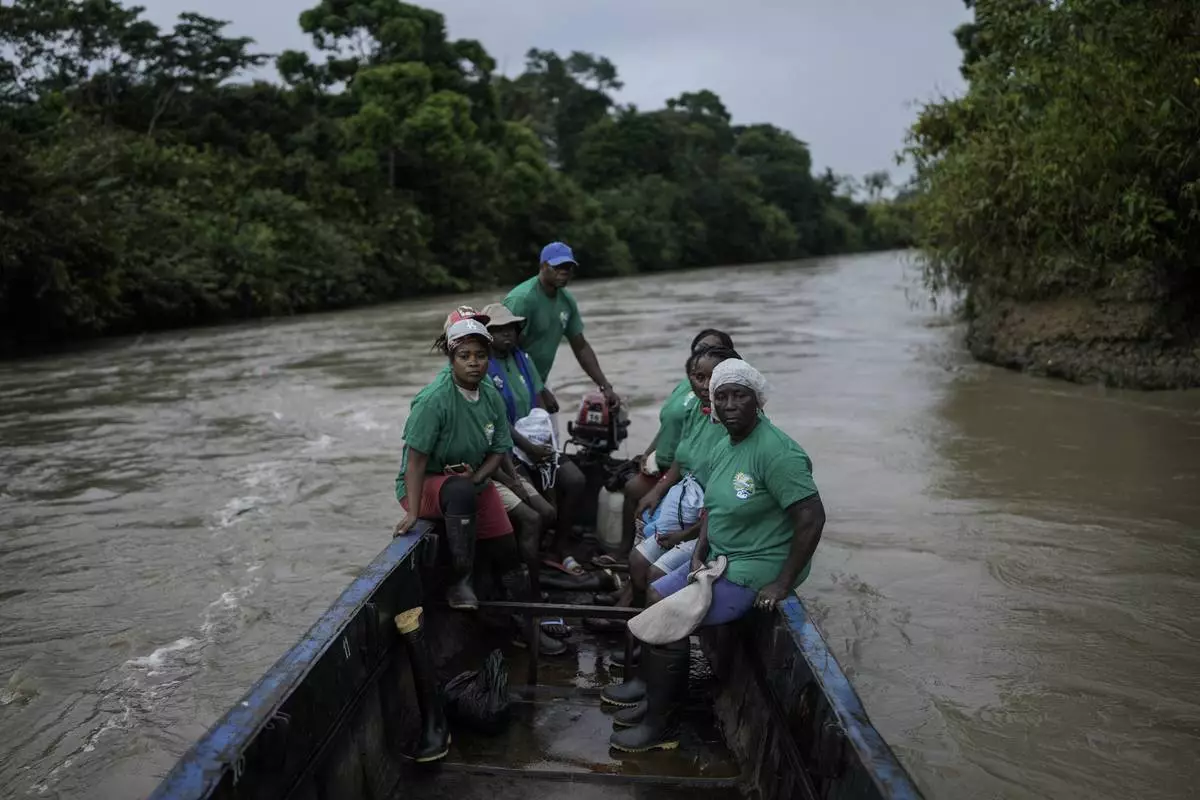
A group of women, part of Asociacion Nuestra Casa Comun, or Our Community House Association, go by boat to an area destroyed by illegal mining, on the Quito River, near Paimado, Colombia, Tuesday, Sept. 24, 2024. (AP Photo/Ivan Valencia)


